Aidan Dunne talks to painter Martin Mooney about his career and the development of his work
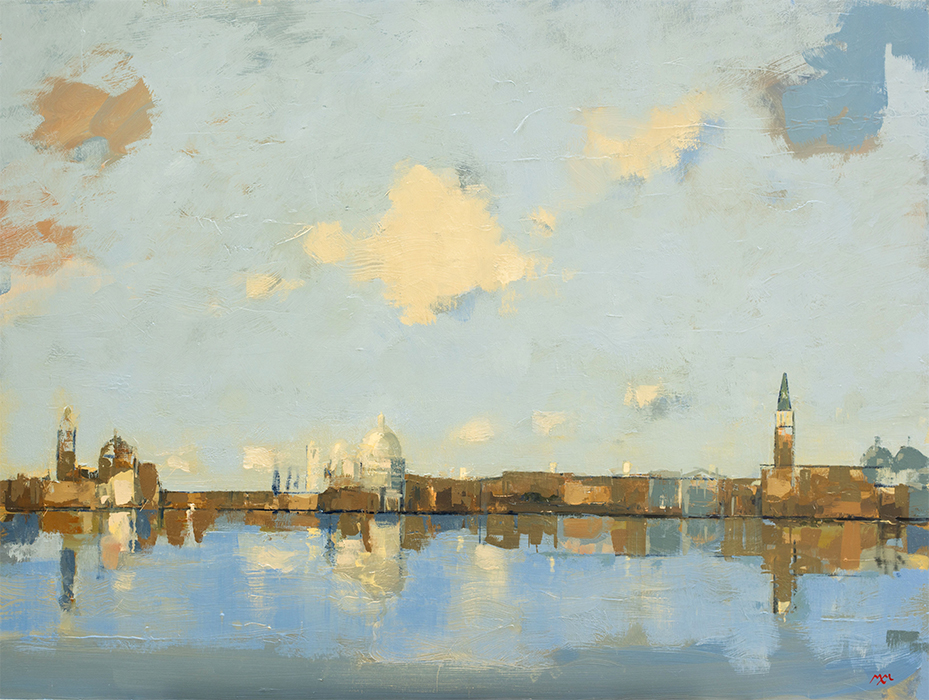
Aidan Dunne talks to painter Martin Mooney about his career and the development of his work
Aidan Dunne: Did you paint from an early age?
Martin Mooney: I did. We were in Belfast and, as the Troubles took hold from around 1969, my mother was keen to make sure I was occupied. She enrolled me in some local art classes given by a very good teacher, which I kept up for two years. I learnt how to organise a palette, how to mix colours and a lot of basic landscape-painting tech-nique, some of which I apply to this day, such as always incorporating yellow in cloud shadow. In a way it was quite a strange experience because it was a kind of synchronised painting – we’d all work away to the teacher’s commentary as he painted.
AD: That sounds very useful for an aspiring painter. Were your sights set on art from that time?
MM: They were. I was pretty sure I wanted to be an artist and I went to Brighton to do my degree. In my foundation year I was making installations and various things that had to do with the Troubles, essentially, and at a certain point I felt that I needed to learn how to paint again. I then spent a year drawing in the life room and didn’t really do any paint-ing, which ruffled a few feathers, but some of the staff were very supportive. My personal tutor was painter Patrick Burke. He was head of Fine Art Painting at the time in Brighton and very supportive of what I was trying to do. From there, I went on to the Slade to complete an MA, and then I won the Richard Ford Award from the Royal Academy in 1985. The basis of the award was that you go and work in Spain, and I went to Madrid. I fell in love with Spain and lived there for eight years.
To read this article in full, subscribe or buy this edition of the Irish Arts Review
Aidan Dunne: Did you paint from an early age?
Martin Mooney: I did. We were in Belfast and, as the Troubles took hold from around 1969, my mother was keen to make sure I was occupied. She enrolled me in some local art classes given by a very good teacher, which I kept up for two years. I learnt how to organise a palette, how to mix colours and a lot of basic landscape-painting tech-nique, some of which I apply to this day, such as always incorporating yellow in cloud shadow. In a way it was quite a strange experience because it was a kind of synchronised painting – we’d all work away to the teacher’s commentary as he painted.
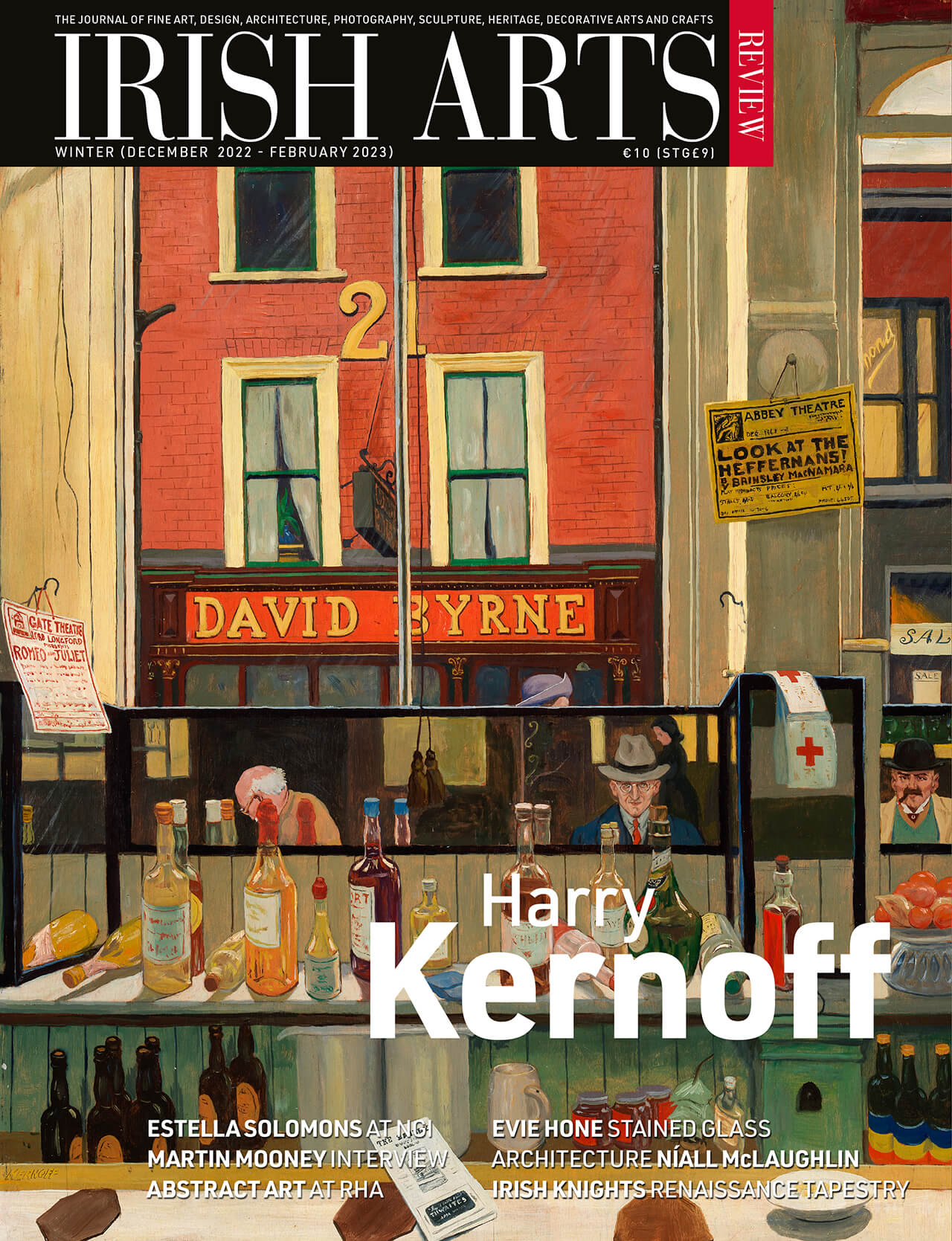
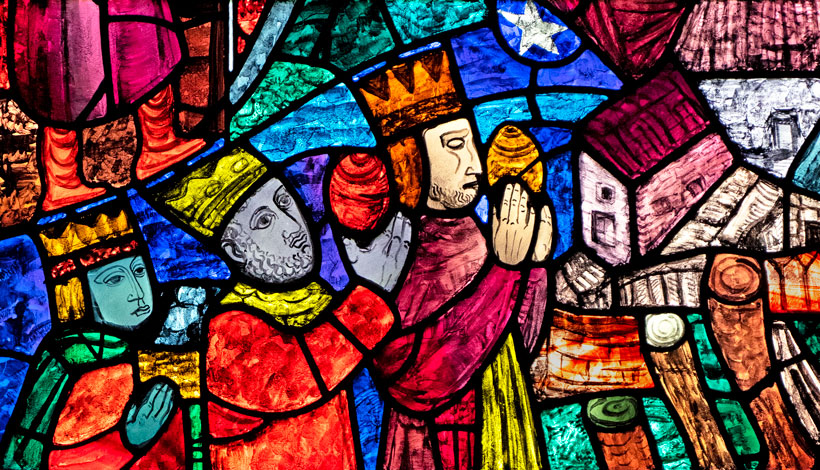
Joseph McBrinn charts the history of Evie Hone’s Tullabeg windows, which illustrate scenes from the life of Christ
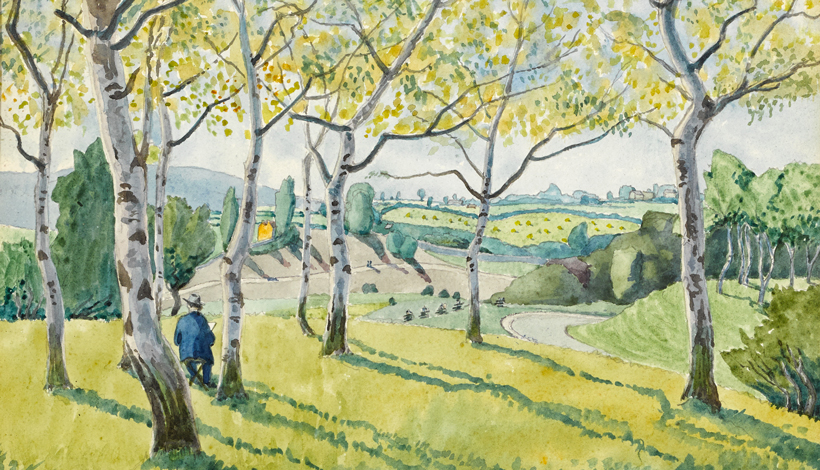
Brian Fallon remembers a modest exhibition that began a love affair with the work of Harry Kernof
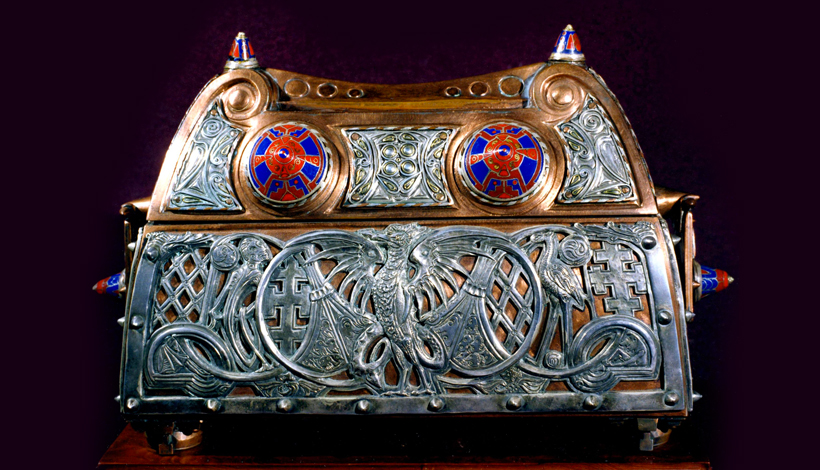
Síghle Bhreathnach-Lynch remembers a leading member of the Celtic Revival, artist Mia Cranwill